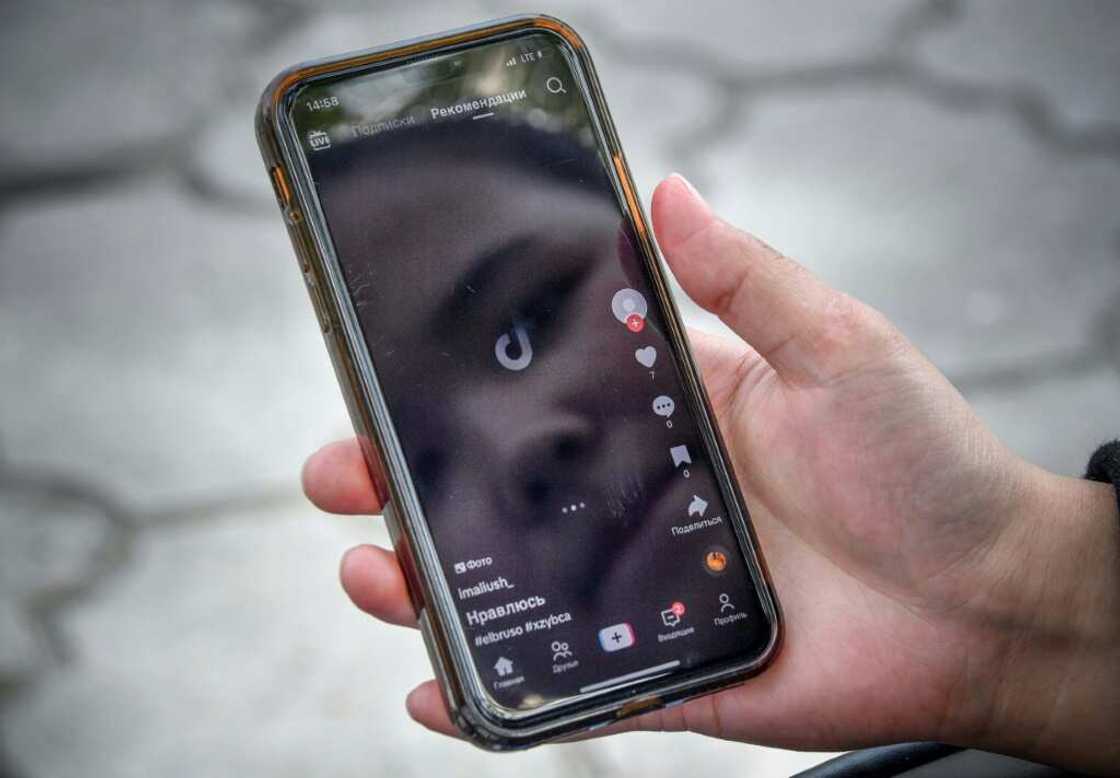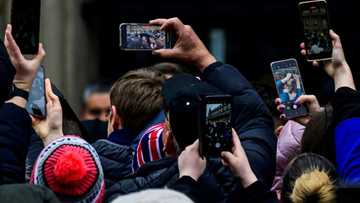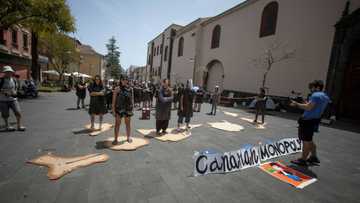Kyrgyzstan's TikTok block builds censorship fears

Source: AFP
In her photography studio in the capital of Kyrgyzstan, Aku Sharsheeva, tried unsuccessfully to connect to TikTok this week.
"Nothing loads. There are no videos," the 22-year old told AFP, showing an error message displayed on the app's home page.
The Central Asian country this week blocked the video-sharing platform after its security services expressed concern over the influence on children.
Sharsheeva had used TikTok, which has more than one billion monthly users worldwide and is owned by Chinese tech giant ByteDance, to market her photography business. Now she will have to find another way.
The ban in Kyrgyzstan -- a small, ex-Soviet country of seven million people -- is just one small part of a global backlash from politicians and regulators to the app's surging popularity.
TikTok is embroiled in a string of battles over issues ranging from the mental health effects of the app to the data it allegedly scoops up from users.
Azamat Asanov, an official in Kyrgyzstan's digital ministry, told AFP the decision to cut access had come down from the security services.
"The decision was motivated by TikTok's failure to comply with a law on preventing harm to children's health," he said.
Some TikTok users in the country question that reasoning.
"Closing down TikTok is absolutely absurd. The malicious content they want to protect children from can be found everywhere, on any social network," said Sharsheeva.
She said the block was the latest sign of a "repressive deterioration" unfolding in the country.
"Those who block it are doing so to control freedom of speech," she said.
'Pressure'
Kyrgyzstan, once seen as the most politically open country in the region, has mounted an escalating campaign to bring independent media and civil society under closer state control in recent months.

Read also
Mohbad's wife Wumi reacts to court order on DNA via her counsel, private chat emerges online: "It's all lies"
Authorities have arrested several journalists, suspended independent media outlets and passed a "foreign agents" law that critics say is designed to silence dissenters.
"I don't think there was any need to block TikTok," said Aigerim Bekbosunova, a 20-year-old medical student who often watched educational videos on the platform.
Another student, Syymyk Zhyrgalbekov, said a ban could help -- but more as an antidote to social media addiction.
"It will help school kids. I and others were really addicted to TikTok," the 18-year-old said. "It was hurting our studies".
TikTok is also in the spotlight over its data policies in the United States and European Union, where fears are growing over the company's links to Beijing.
Kyrgyzstan borders China where it has important economic ties.
The country's State Committee for National Security, which requested the ban -- is a successor to the Soviet-era KGB secret police and headed by the powerful Kamchybek Tashiev.
Asked whether a ban on other social media platforms could follow, the agency was non-committal, telling AFP it "doesn't know at the moment."
Studio owner Sharsheeva said blocking the app left no doubt as to the direction the ex-Soviet country was heading in.
"We have had a lot of pressure on activists, on journalists, on various media. It was on TikTok that you could promote your point of view," she said.
"It seems that the state doesn't like the fact that some alternative opinions are wandering freely around the internet."
PAY ATTENTION: Stay Informed and follow us on Google News!
Source: AFP




